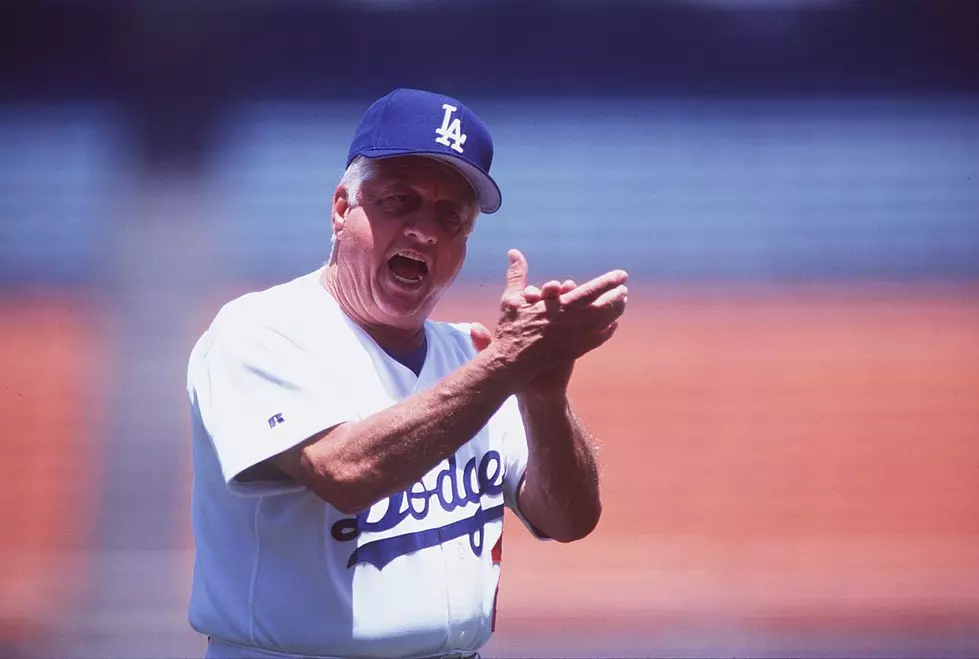
Ode to Ken Griffey Jr. From a Diehard Yankees Fan
As a child of the 90s who grew up in New York, it was hard to avoid baseball, especially coming from a family of diehard Yankee fans. When the late-90s teams went on a run of four championships in five years, it was only natural that my love for baseball and the Yankees would grow.
Baseball fans are constantly reminded of the “black cloud” over the game: Performance-enhancing drugs. It's been documented that these substances were used dating back to the late-80s. When Major League Baseball came back from the strike in 1994, Commissioner Bud Selig purposely turned a blind eye to it. Artificial numbers and more homeruns led to increased interest in the sport, in turn leading to better attendance numbers and skyrocketed TV ratings. Money was most definitely not an issue.
Guys like Mark McGwire, Sammy Sosa, Roger Clemens and Barry Bonds have been forever shamed because of their PED use, but since they've been away from the game, the cloud has started to fade. Instead of constant bickering about what the record books should look like, we, as baseball fans, are now forced to deal with the thousand-pound gorilla in the room once a year during the voting process for the Hall of Fame.
In a couple of years, Ken Griffey Jr. will be on the Hall of Fame ballot for the first time. Griffey is the one baseball player from the juicing era who gets a free pass. Writers, players, coaches and fans alike know he put up the numbers he did naturally. I wonder, however, how many people out there realize just how good those numbers are. Because Griffey never had a drug-fueled outburst of power like McGwire's 70 homeruns in 1998 or Bonds' 73 homeruns in 2001, he could sometimes be overlooked.
In Seattle, Ken Griffey Jr. led the American League in homeruns four times. He finished in the top five in MVP voting five times, winning the honor in 1997. That, along with ten Gold Gloves for his near-perfect defense in centerfield, seven Silver Sluggers and 11 selections to the All-Star team. He did this all before turning 30 years old, without the help of steroids.
When Ken Griffey Jr. joined the Cincinnati Reds, injuries and age caught up to him. His legs broke down and he started to spend more and more time on the disabled list. He didn't play in more than 85 games between 2002 and 2004. By the time Griffey started playing on a semi-regular basis again, he was already 35 years old. For power-hitters that are not helped out by PEDs, 35 is the beginning of the end.
I remember being at the Old Yankee Stadium during an interleague game in June of 2008. The Reds were in town and my grandfather and I bought tickets specifically to see Griffey play. 2008 was the final season the Yankees played in the original stadium and I wanted to see the best hitter I've ever seen take the field on the Yankee Stadium hollowed ground one last time.
The Yankees would go on to win 4-1 but that one run came in the 8th inning. Ken Griffey Jr. took one of his iconic swings at a Kyle Farnsworth fastball and he crushed it into the right field stands. By pure instinct, I got up and started giving Griffey a standing ovation as he rounded the bases. As I was doing that, I started to get self-conscious. I was nervous that I would be booed by my fellow fans for cheering on an opponent. Instead, the entire crowd slowly rose. To a degree, they all felt the same way I did, knowing they may never get a chance to see this ever again. He got a curtain call from the Bronx faithful, which is a rarity for any visiting player.
Ken Griffey Jr. would go on to close out his career in respectable fashion. After being traded by the Reds to the Chicago White Sox in 2008, his career came full circle -- in 2009 he returned to the Seattle Mariners as a free agent before voluntarily retiring from the game in the middle of the 2010 campaign.
The career that Griffey put together is a memorable one for sure. The numbers stand out. His swing is widely thought of as the sweetest left-handed swing since the days of Babe Ruth. While we all acknowledge how great he was, I think it's time we recognize him as the best that anyone under the age of 35 has ever seen play the game. Historic records may have been tarnished and World Series may have been won by teams consisting largely of cheaters, but the positives from that era should not be forgotten.
More From New Jersey 101.5 FM









